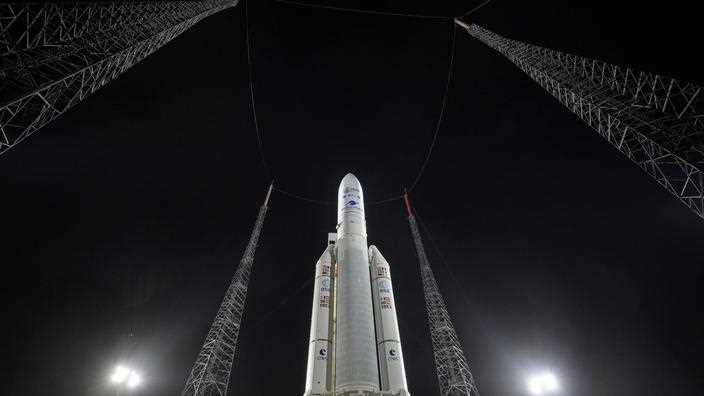A Russian scientist employed in a German university is on trial from Thursday, February 17 in Munich, accused of having spied on the European space program Ariane on behalf of Moscow, in the midst of Russian-Western tension around Ukraine. This man presented only as Ilnur N. and who worked at the University of Augsburg (south-west) responds to“secret service agent activity”according to the German Federal Prosecutor’s Office, competent in matters of espionage.
Read alsoSpy stories: Anna Chapman, the pseudo-reality TV star Russian agent
Concretely, justice accuses him of having collected information on behalf of Russia “in the different stages of development of the European Ariane launcher”. He is accused of having met several times with a senior Russian foreign intelligence official to whom he transmitted, “at numerous meetings, information on research projects in the field of aerospace technology, in particular on the various stages of development of the European Ariane launcher”. In return, he received cash for a total amount of 2,500 euros, according to the Karlsruhe prosecutor’s office.
The Russian, about whom little information has circulated, was arrested last June in Germany and has since been in pre-trial detention. The daily Picture claimed at the time of his arrest that it was a man named Ilnur Nagaev. The University of Augsburg, in Bavaria, had confirmed that he worked in this institution and that his office had been searched while the German justice was content to indicate that he was a scientific assistant “for a scientific-technical chair”.
Read alsoSpy stories: Günter Guillaume, the man who brought down Willy Brandt
Shortly after his arrest, during the summer, Germany had expelled a Russian diplomat officiating at the consulate in Munich. The Ministry of Foreign Affairs had not made this decision public but confirmed it at the end of January when the weekly Der Spiegel published this revelation. Berlin, however, has not confirmed that the expulsion of this person, who pretended to be a diplomat but was in fact a Russian foreign intelligence agent, was linked to this espionage affair. According to Spiegelthe federal prosecutor’s office spotted him while investigating the Russian academic.
This trial comes in a context of acute tensions between Russia and Westerners who fear an invasion of Ukraine by Moscow. German Chancellor Olaf Scholz, who visited Moscow for the first time on Tuesday, reaffirmed his desire to continue dialogue with Russian President Vladimir Putin, with a view to de-escalation, while recalling that immediate sanctions would be deployed. in case of attack from Ukraine.
Read alsoSpy stories: Farewell, the KGB agent who loved France too much
Accusations of cyber espionage against Moscow have in recent months soured relations between Russians and Germans, who also maintain close economic ties. German justice had sentenced a former employee of a computer security company to a two-year suspended prison sentence at the end of October for having transmitted data on the German Chamber of Deputies to Russia. But it is above all the attempted poisoning of the opponent Alexei Navalny in August 2020, for which Moscow is held responsible by the West, which has contributed the most to the deterioration of German-Russian relations.
The Russian intelligence services have experienced a strong revival of activity in Europe in recent years, according to experts. Many Russian diplomats accused of espionage have been expelled in recent months from Italy, Bulgaria, the Netherlands, Austria, France and the Czech Republic. Each time, Moscow reacted in a symmetrical way, while denouncing unfounded and “Russophobic” accusations. Russia is also accused of large-scale computer hacking which in 2015 targeted the computers of the Bundestag and the services of then-Chancellor Angela Merkel, as well as NATO and the French-language television channel TV5 Monde.
